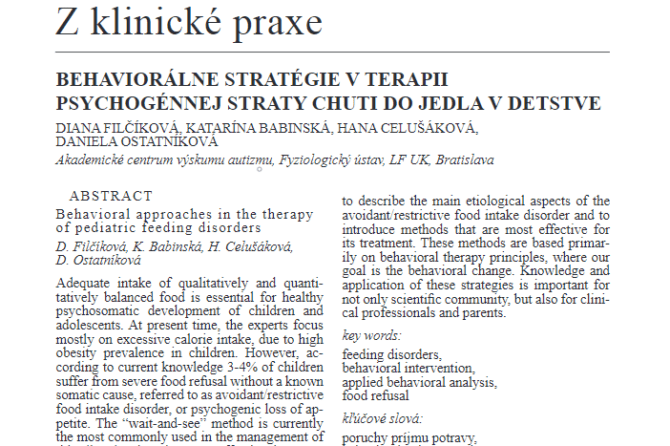
AUTHORS: Celarova, D., Babinska, K., Celusakova, H., Ostatnikova, D.
ABSTRACT: Adequate intake of qualitatively and quantitatively balanced food is essential for healthy psychosomatic development of children and adolescents. At present time, the experts focus mostly on excessive calorie intake, due to high obesity prevalence in children. However, according to current knowledge 3-4% of children suffer from severe food refusal without a known somatic cause, referred to as avoidant/restrictive food intake disorder, or psychogenic loss of appetite. The “wait-and-see” method is currently the most commonly used in the management of this disorder, but the most effective intervention has been shown to be techniques based on behavioral therapy. The aim of our work is to describe the main etiological aspects of the avoidant/restrictive food intake disorder and to introduce methods that are most effective for its treatment. These methods are based primarily on behavioral therapy principles, where our goal is the behavioral change. Knowledge and application of these strategies is important for not only scientific community, but also for clinical professionals and parents.
Československá psychologie 2019. 63(1): p. 116-126.


